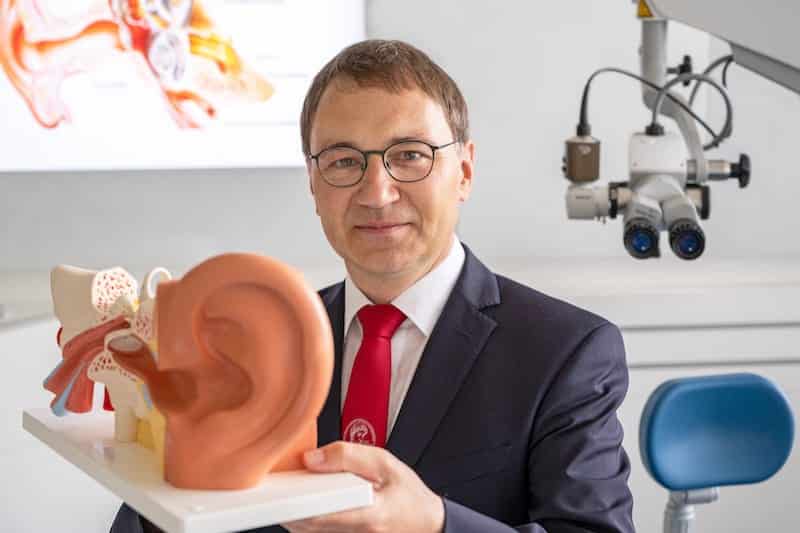A clinical study led by Professor Stefan Plontke from the University Medicine Halle evaluated the efficacy of different doses of glucocorticoids in over 300 sudden hearing loss patients and found that high-dose glucocorticoids are no more effective than the standard-dose in treating patients with sudden hearing loss.
High-dose glucocorticoids are also associated with more side effects and significantly worse outcomes for speech recognition and tinnitus perception. Additionally, 60% of patients treated with the standard dose had not fully recovered by the end of the study, which was published in NEJM Evidence. These results raise the possibility that glucocorticoids may not be sufficiently effective in treating this condition.
Glucocorticoids are prescribed worldwide as the standard-of-care for sudden hearing loss. However, in certain circumstances, their side effects can be severe, and it remains unclear whether they provide meaningful improvement for patients, the researchers observed.
“These drugs have been used globally for 50 years as the standard of care for sudden hearing loss, still there is no reliable scientific evidence for this practice,” says Plontke, underscoring the increasing need for new treatments.
Many companies are exploring alternatives. However, there is currently only one clinical trial with a new active substance in which patients can participate: The compound AC102 outperformed the widely used cortisone-like dexamethasone in preclinical models of hearing loss, likely because it specifically targets damaged sensory cells and the auditory nerve. Clinical trials are now testing whether this effect is comparable in humans.
“We are not surprised by the HODOKORT study results. Glucocorticoids as anti-inflammatory drugs are a good treatment option for many conditions. However, there is no convincing mode-of-action for the treatment of sudden hearing loss with steroids, as our own research has shown,” says Reimar Schlingensiepen, MD, CEO of AudioCure Pharma.
Featured image: Professor Stefan Plontke, principal investigator of the study at the University Medical Center Halle Photo: University Medicine Halle





